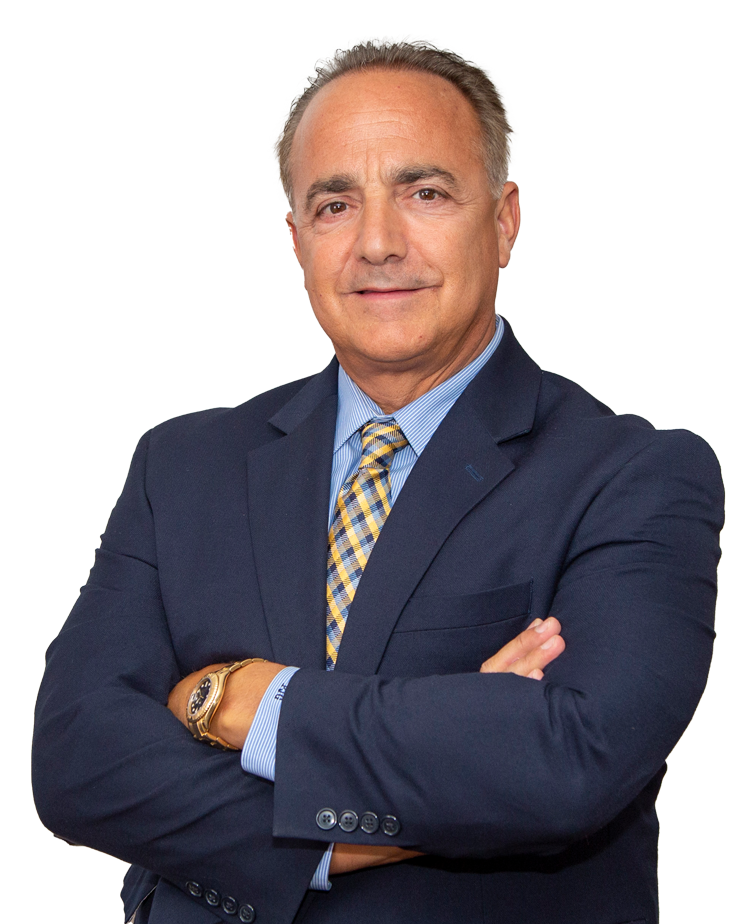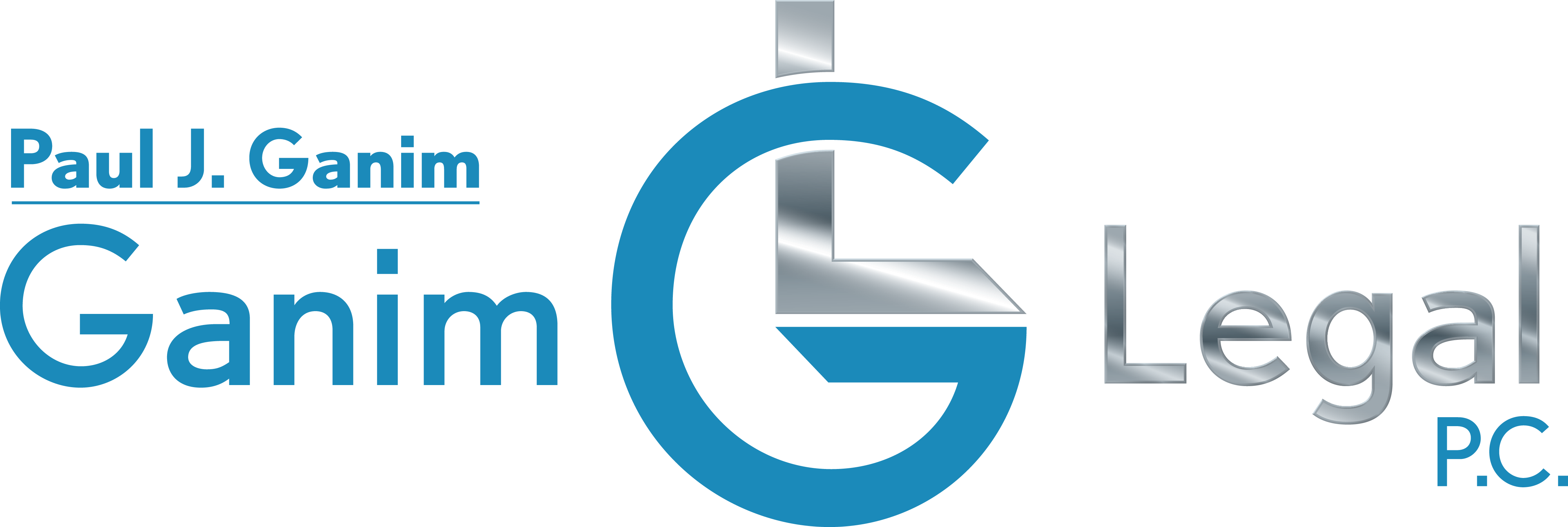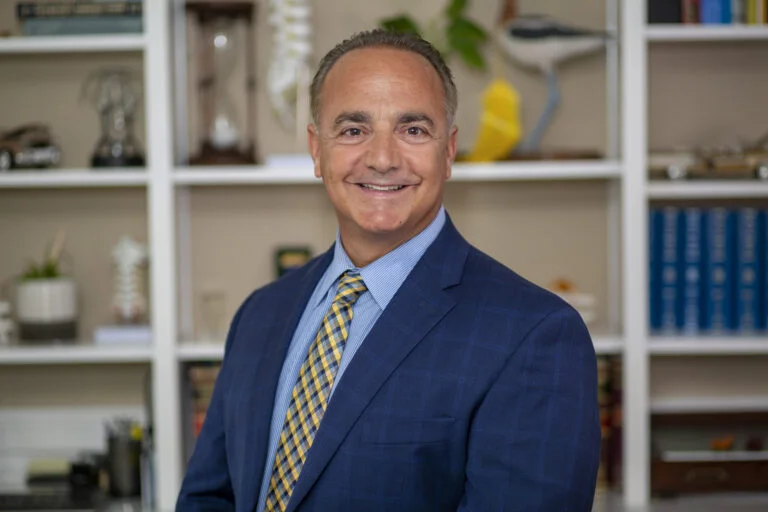You should get a medical evaluation as soon as possible after a car accident—ideally within 72 hours. While there’s no legal deadline in Connecticut, injuries that go undiagnosed in the first few days can worsen and may be harder to link directly to the crash.
From a legal perspective, insurance companies often scrutinize the time between the accident and your first medical visit. If you wait too long, they may argue that your injuries weren’t caused by the crash or that they aren’t serious enough to warrant compensation.
Prompt medical attention not only protects your health—it also signals to insurance companies that your injuries were serious enough to require immediate care, helping you preserve the credibility of your claim.
⚠️ Waiting too long can hurt both your health and your legal case.
At Ganim Legal, P.C., we’ve seen how even a short delay can give insurers an opening to minimize or deny compensation. Early documentation gives our team the tools to push back and fight for the full amount you’re owed.
Our Bridgeport car accident lawyer is available today for a free consultation to help you seek the compensation you deserve.
When to go to the hospital after a car accident in Connecticut
After a car accident, certain symptoms should prompt an immediate hospital visit. Early diagnosis not only protects your health but establishes a clear timeline connecting your injuries to the accident.
- Head injuries might manifest as headaches, dizziness, blurred vision, or memory problems. These symptoms could indicate a concussion or traumatic brain injury requiring immediate attention.
- Neck and back pain often signals whiplash, herniated discs, or spinal injuries. Even mild discomfort can indicate more serious underlying conditions.
- Numbness or tingling in the extremities may suggest nerve damage or spinal cord compression. These symptoms can worsen rapidly without proper treatment.
- Abdominal pain or bruising might indicate internal bleeding, which can be life-threatening if not treated promptly. Some internal injuries show no external signs.
- Emotional distress, including anxiety, sleep disturbances, or flashbacks, could be early signs of PTSD. Mental health impacts deserve the same attention as physical injuries.
The table below shows how different injury symptoms may appear at various times after an accident and why prompt medical attention matters:
| Injury Type | Symptom Onset Time | Why It’s Dangerous |
|---|---|---|
| Whiplash | Hours to days | Soft tissue damage is hard to detect early |
| Concussions | Immediate or delayed | Can cause long-term cognitive issues |
| Internal Bleeding | Hours to days | Life-threatening if untreated |
| Spinal Cord Injuries | Gradual | Can lead to paralysis or chronic pain |
| PTSD or Emotional Trauma | Weeks to months | Mental health issues may worsen without help |
💡 Even if you feel fine after a crash, go to the hospital—some serious injuries don’t show symptoms right away.

When is it too late to go to the doctor after a car accident?
While there’s no strict medical deadline for seeking care after a car accident, insurance companies and defense attorneys often apply an unofficial “72-hour rule.” This industry standard suggests that truly injured people seek treatment within three days of an accident.
Connecticut law gives accident victims two years from the date of injury to file a personal injury lawsuit under the statute of limitations (Chapter 926, Sec. 52-584). However, waiting even a week to seek treatment can significantly impact your claim’s strength.
Insurance adjusters carefully analyze any “gap in treatment” between the accident date and your first medical visit. They use these gaps to question medical causation, suggesting your injuries aren’t connected to the accident or weren’t serious enough to warrant immediate care.
When examining claims, insurance companies follow standard practices of scrutinizing delayed medical treatment. Their adjusters are trained to identify these gaps and use them as leverage to reduce settlement offers or deny claims entirely.
💡 Hypothetical Scenario: A driver involved in a rear-end collision declines ambulance transport and doesn’t visit the hospital, feeling only minor soreness. Five days later, they develop severe neck pain and headaches. Upon seeking treatment, the insurance adjuster questions why they waited, suggesting these symptoms might be unrelated to the accident. The claim is significantly devalued based on this delay.
For injury victims who experience delayed symptoms, documenting when symptoms first appeared and seeking care immediately afterward helps establish credibility with insurers and in court.
Additional reading: Monroe car accident lawyer
Does visiting the doctor or hospital help my settlement offer after a car accident?
Yes. Prompt medical treatment can make a significant difference in the outcome of your settlement. Here’s how:
- Creates immediate documentation: Medical records show the date, nature, and severity of your injuries, providing critical proof that they resulted from the accident.
- Links injuries to the crash: The sooner you’re seen, the harder it is for insurers to argue that something else caused your injuries.
- Supports consistent treatment: Gaps in care can be used against you, making it appear as if your injuries weren’t serious or didn’t require ongoing care.
- Impacts your settlement calculation: Many insurers use the multiplier method to estimate pain and suffering—multiplying your medical expenses by a number (usually between 1.5 and 5). Prompt, well-documented treatment supports a higher multiplier by showing the severity, duration, and life impact of your injuries.
Delaying treatment beyond 72 hours can cause adjusters to:
- Question whether your injuries were caused by the accident
- Apply a lower multiplier, reducing your total compensation
- Dispute the severity or legitimacy of your pain and suffering claim
✔️ Facilities like the Bridgeport Hospital Emergency Department provide detailed reports that can serve as key evidence in your case.
Our Shelton car accident lawyer has experience handling delayed treatment cases and can help build a strong claim, even if you didn’t seek care immediately.
What if I didn’t feel injured at the time of the accident?
It’s completely normal not to feel injured immediately after an accident. Your body’s natural response to trauma includes releasing adrenaline and endorphins, which can temporarily mask pain and other symptoms for hours or even days after the collision.
Many serious injuries, including whiplash, concussions, and internal bleeding, develop symptoms gradually as inflammation increases and tissue damage becomes apparent.
A paper published by the National Center for Biotechnology Information (NCBI), titled On matters of causation in personal injury cases: Considerations in forensic examination, emphasizes the importance of prompt and thorough medical assessments. It explains how delays can make it more difficult to prove that your injuries were caused by the accident, potentially affecting your ability to recover compensation.
⚖️ Your right to seek compensation doesn’t vanish just because your symptoms showed up late. But it can make the claim harder to fight.

How delayed medical treatment impacts your car accident case
Delaying medical care after a crash can seriously hurt your claim, especially if you have pre-existing conditions in the area of injury. Insurance companies are quick to argue that your pain is from an old injury, not the accident. That’s why timing is everything.
- Weakens causation in pre-existing injury cases: If you already had back or neck issues, a delay creates a causation gap, giving insurers room to argue that your current pain isn’t connected to the crash. Prompt care helps clearly distinguish between prior conditions and new trauma.
- Challenges the eggshell plaintiff doctrine: Connecticut law protects injured victims even if they’re more vulnerable due to pre-existing conditions. But if you delay treatment, insurers may claim you failed to mitigate your damages, weakening your right to full compensation under this rule.
- Reduces perceived injury severity: A long gap before seeking care makes it easier for insurers to argue your injuries were minor or unrelated, especially when no symptoms were reported right away.
- Invites insurance tactics: Adjusters may use your treatment delay to justify lowball offers or demand an independent medical exam (IME). These exams are often used to dispute causation and challenge the necessity of further treatment.
💡 Even if you’ve had prior injuries, seeking prompt medical attention protects both your health and your legal rights—and helps reinforce your claim under the eggshell plaintiff doctrine.
Our Stamford car accident lawyer will evaluate your case and help you understand your options, even if you’ve delayed seeking medical care.
Steps to take if you haven’t gone to the hospital yet
If you haven’t sought medical attention after your accident but are now experiencing symptoms, take these immediate steps to protect both your health and legal rights:
- Visit a medical provider today: Schedule an appointment with your primary care physician, visit an urgent care center, or go to the emergency room, depending on your symptoms. Explain that you were in a recent accident.
- Request copies of all records and bills: These documents form the foundation of your claim, so obtain complete copies of all medical reports, diagnostic imaging results, and treatment recommendations.
- Write down your symptoms daily: Start a pain journal documenting when symptoms began, their severity, and how they affect your daily activities. This contemporaneous record helps establish the progression of your injuries.
- Follow treatment plans exactly: Attend all follow-up appointments and complete prescribed therapies. Gaps in your treatment timeline can be used against you by insurance companies.
- Talk to our attorneys: Even with delayed medical treatment, you may still have a viable claim if the statute of limitations hasn’t expired. Our experienced team can assess your situation and develop strategies to address treatment delays.
Real-world case examples from Ganim Legal
At Ganim Legal, we’ve represented numerous clients whose outcomes were shaped in part by how promptly they sought medical attention after an accident.
In one case, our team secured $283,544.00 plus interest for a 40-year-old man who was rear-ended while stopped at a red light on East Main Street in Stamford. The plaintiff suffered serious neck and back injuries as a result of the collision.
💡 Neck and back injuries may not be obvious right away, especially if you’re not transported by ambulance. But symptoms can worsen rapidly in the hours or days that follow. Seeking prompt medical care—even if you feel stable enough to leave the scene on your own—helps ensure early diagnosis and preserves the medical documentation critical to your personal injury claim.
Protect your health and your legal rights—get medical help now
Delayed symptoms after a car accident are common, but waiting to seek treatment can weaken your position with insurance adjusters and raise doubts about the cause of your injuries. Even if you didn’t visit a doctor immediately, you still have options to protect your health and legal rights.
The most important step you can take now is to seek medical attention for any symptoms you’re experiencing, no matter how minor they seem. Proper documentation is still possible, even if it comes later than ideal.
✔️ The sooner you act, the stronger your case can be.
If you’ve been injured in a crash, don’t wait to get the legal guidance you deserve. Call us at (203)884-7075 or contact us through our form for a free consultation.

FAQs
What if I can't afford to go to the hospital after a car accident?
Cost concerns shouldn’t prevent you from seeking necessary medical care after an accident. Your auto insurance policy may include Medical Payments (MedPay) optional coverage, which helps pay for immediate treatment regardless of fault. Additionally, many medical providers will treat accident victims on a lien basis, meaning they’ll defer payment until your case is resolved.
Can I still file a claim if I went to urgent care instead of the ER?
Absolutely, urgent care documentation is valid and valuable evidence for your claim. The critical factor is seeking professional medical attention, not which facility you choose. Urgent care records establish the same timeline and causation as emergency room visits, often at lower cost and with shorter wait times.
Will the insurance company pay for my hospital visit upfront?
Most insurance companies don’t pay medical bills upfront after an accident. Typically, you’ll use your health insurance or auto insurance medical payments coverage initially, with final medical expense reimbursement coming through your settlement. Connecticut follows a fault-based system, meaning the at-fault driver’s insurance should ultimately cover your medical expenses through the claim process.
How do I prove my injuries if I didn't get imaging like X-rays or MRIs?
While diagnostic imaging provides compelling evidence, your medical provider’s clinical evaluation and diagnosis still carry significant weight. Follow your doctor’s recommendations regarding imaging studies, and if they weren’t initially ordered, request them at follow-up appointments if symptoms persist.
Medical records documenting consistent complaints, physical examination findings, and treatment response can support your claim even without imaging.
What kind of doctor should I see after a car accident?
Start with an emergency room visit or primary care appointment for a comprehensive evaluation. Depending on your injuries, you may then be referred to specialists such as orthopedists for musculoskeletal injuries, neurologists for head injuries or nerve damage, or physical therapists for rehabilitation.
The most important factor is seeking prompt care from any licensed medical professional rather than delaying treatment while searching for the “perfect” provider.





